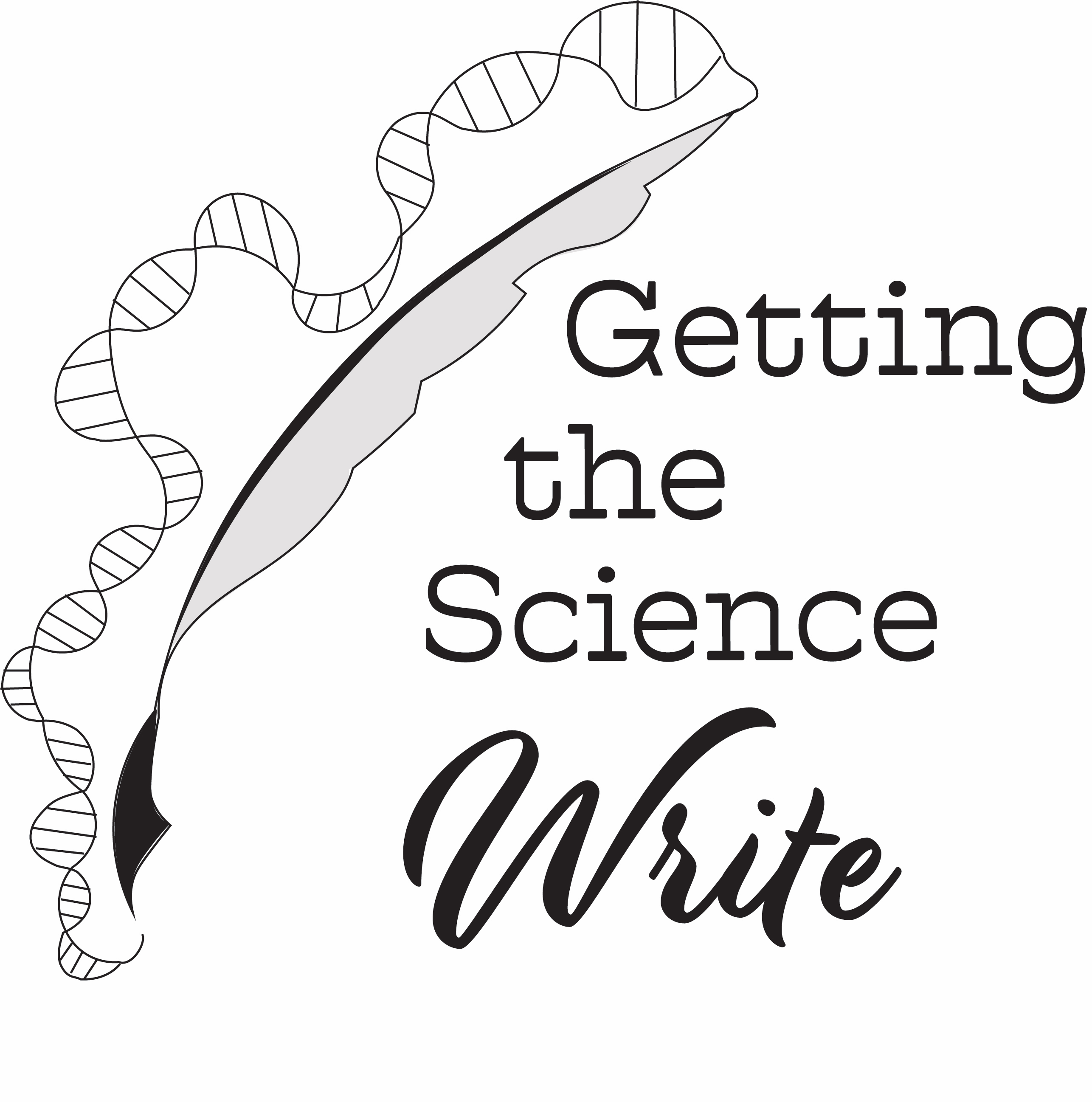How to Talk Science
“I utilized the Sodium Dodecyl Sulfate Polyacrylamide Gel Electrophoresis to isolate the polypeptide of interest, which I then scrutinized with the protein immunoblot protocol…”
“Dude, what are you talking about?”
“…I ran an SDS Gel to separate our conglomeration of proteins and then I examined the protein using antibodies-”
“I am a lab technician, dude. You can literally just say you ran a Western blot and call it good. No need to impress with long words.”
“…Ok, fine. I ran a Western blot. Happy?”
“Happy that you’re speaking English again? Very.”
Ah yes. Big words. Erudite words. The polysyllabic tongue has been the trademark of the fictional scientist in many a genre.
The issue with this form of dialogue is threefold:
1) No one understands the science that is happening here. Not you, not your characters, and most importantly, not your readers. 2) You are making a character who should be an asset into an ass. 3) We. Don’t. Talk. Like. That.
So let’s talk about using our words, shall we?
Shortening is Not A Shortcoming

There will definitely be a separate post on writing scientists in your fiction. On the topic of scientist to scientist communication I can tell you from personal experience: scientists are hard to understand, but not because they use big words.
We abbreviate the hell out of everything.
“T-Follicular Helper Cells” becomes Tfh’s.
“Insulin Dependent Diabetes Mellitus” is now IDDM.
“Human Immune Deficiency Virus” is HIV.
“Sodium Dodecyl-” Nah, too long. SDS-PAGE.
Pages of protocols are boiled down to their titles, like Western blot. PCR. Microscopy. We don’t spend hours explaining our protocols unless we’re talking to someone unfamiliar with the procedures and they ask for clarification.
In fact, a major issue with scientist-to-scientist communication is that we tend to assume that the other person knows the protocol or the abbreviation.
Now, I will admit that scientists of all backgrounds will throw in some large words, but most of the time these words spell out exactly what they are describing once you break down the Latin and Greek roots. (Osteoporosis= “Osteo” (Bone)+ “Poro”(Pore)+ “Osis”(Condition)= Condition of hollowed bones). In keeping some of your longer words, you can actually get the same effect as the abbreviation.
We scientists talk like this to one another: “I ran an SDS gel on the antibodies. The IgE from the CRE-mice ran the farthest on the gel for some reason, so I’m thinking of running the gel again under native conditions so I can run Mass Spec on it.”
For less science-inclined people, we need to alter our vocabulary: “I separated the proteins on a special gel and found that a certain antibody from our experimental mice was smaller than the rest. I’m going to run some more experiments on it to see what’s up.”
Notice that the first example has about the same number of words as the second, but contains an incredible amount of information! From it, we know exactly what type of experiment was run, what the “weirdo” results were, where the results came from, and exactly what steps will be taken afterwards. Abbreviations get more info across in less time. If your scientist character is talking to a colleague, they’d better be using their abbreviations, and using them well!
No Jerks, Please
As an advocate for all scientist readers… Stop making your fictional scientists talk down to people! We just forget to code switch to laymen’s terms when we get excited about our research or forget how to “talk normally” when trying to describe our work! 99% of the time, we’re not trying to actually talk down to anyone!
That being said, remember to have your scientist code-switch to their non-science friends. Code switching is a linguistic term for jumping back and forth between languages; remember that jargon for any profession is essentially a separate language, despite having English words. Being able to code switch is actually considered a sign of intelligence, so the more linguistically flexible your scientist is, the smarter they are.
Plus, the character no longer comes across as a complete sociopathic jerk.
A CAVEAT: language is, and will always be, used as a hierarchical tool, and the realm of science is no exception. If your character wants to solidify themselves as a peer among other researchers in their field, they’d better be throwing down that vocabulary like a rap battle. If your character is a woman in science, I can guarantee you that she will start slipping in high vocabulary if someone starts to talk down to her, especially if that person is a non-science guy.
Code-Switching

Let’s define code-switching really quickly: it’s the ability to switch from one dialect to another given varying social contexts. Someone who is bi-lingual is a good example of code-switching, but you can also use the example of two different English dialects and being able to flip-flop between them with ease depending on who you talk to. Say, switching from a thick Irish accent using Irish colloquialisms, to an American accent using all-American phrases.
Your scientist should do this. PLEASE. It’s the biggest pet peeve I have when authors don’t give their scientist to switch between the heavy abbreviation usage (see above), to comprehensible English. Again, it makes the character look like a condescending jerk. Make them use analogies, basic definitions, ANYTHING that doesn’t make them seem like they’re talking down to anyone.
Still want to use the cool nomenclature to show that your scientist character is still a competent researcher? No problem! Remember, you can have your scientist forget to code switch, and then have someone tell them to explain it differently:
“So, the SDS Gel suggests a truncation of the modified poly-”
“Buddy. English.”
“Sorry: the protein is shorter than all of the other ones I tested. Probably because of the chemical the moues was exposed to. I’ll bet money that the inserted gene screwed with the mouse’s expression of that protein… And I mean really screwed with it.”
“Wait, you inserted a gene?”
“Sure! We hijack the DNA repair system in order to make it insert our favorite gene. Think of it like you have a hole in your favorite scarf, and you grab the nearest length of yarn to fix it up because it’s the most accessible yarn, even if the yarn doesn’t match your scarf. You grabbing the wrong yarn by accident is what we’re trying to trick the repair system to do, but with our DNA.”
If you want to impress your readers, you can try having the scientist explain to your character as they go (although this threatens to become like a lecture and can become very boring. Tread carefully).
“So I ran an SDS gel, which lets me look at different sizes of proteins. The protein from the mouse that got doused in chemical ‘ran’ the farthest, meaning that it was cut so short that it was able to slip through everything in the gel and move the farthest.”
Code-switching is not only done between scientist and laymen, but between scientists as well. Remember an older post where I mentioned that scientists can’t cover every topic? A neurobiologist will probably not know what TLR4, IL-8, NF-kb, etc. stands for off the top of their head. Likewise, an immunologist will probably not understand what a synaptic bouton is, or what Kirrel3 does. I can attest that code-switching happens all of the time between scientists; it is not a stretch to have us do the same thing for non-scientists.
The Takeaway?
You know, I think my whole post can be boiled down into one sentence: Do not write scientists like jerks or socially inept by making them use “big science words” only. There are times to use the nomenclature, and there are times to use laymen terms. Your science talk needs to make sense in context.
When I was telling some of my fellow Ph.D students about this post, almost all of them laughed knowlingly when I mentioned the “jerk, condescending scientist” trope and agreed that it peeves them as well. One of our jobs is to translate science; some are better than others, but we’re all trained at it to some degree. Having the trope come up over, and over, and over again tells us that either the author had a bad experience with a scientist, or they haven’t done their research.
